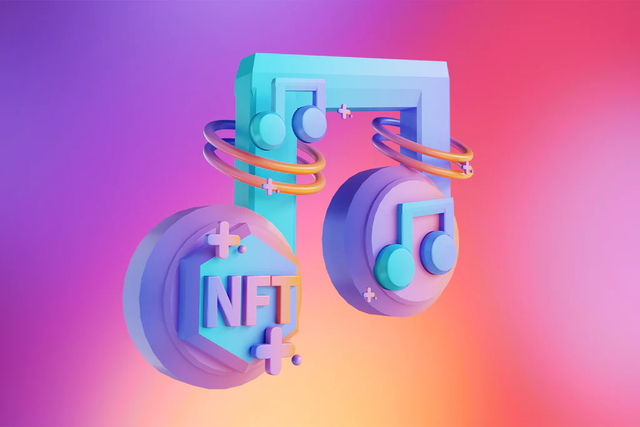About Music NFT

Music NFTs are non-fungible tokens that are used to represent ownership and authenticity of music-related assets, such as songs, albums, concert tickets, merchandise, and more. An NFT is a unique digital asset that is stored on a blockchain and can be bought, sold, and traded like other forms of cryptocurrency.
Music NFTs have the potential to revolutionize the way music rights are managed, by creating a transparent and secure system for artists to sell and monetize their music. With an NFT, an artist can sell a limited number of copies of their songs or albums, for example, and the buyer can prove their ownership through the blockchain. This could provide a new source of income for artists who have struggled in the past with issues related to royalty payments and the distribution of their work.
Music NFTs have also been used to sell rare, one-of-a-kind experiences, such as virtual concerts, meet and greets, and backstage passes. These experiences can be valuable to fans who want to connect with their favorite artists in a unique and personal way.
Overall, Music NFTs are a new and exciting development in the world of music, and they have the potential to offer artists and fans new ways to interact and transact.
Some additional points to consider about Music NFTs:
- Liquidity: One of the benefits of NFTs is that they can provide liquidity to the music industry. This allows artists to sell their works directly to fans, bypassing traditional intermediaries and unlocking new revenue streams. Additionally, NFTs can allow fans to buy, sell, and trade music-related assets with each other, creating a vibrant secondary market for music.
- Verification of authenticity: NFTs provide a way to verify the authenticity of music-related assets. When a song or album is sold as an NFT, the ownership information is recorded on the blockchain, creating an immutable record of the transaction. This can be especially important for rare and valuable items, such as limited edition albums or one-of-a-kind experiences.
- Protecting intellectual property: NFTs can help to protect the intellectual property of artists by providing a secure and transparent system for tracking ownership and distribution rights. This can help to prevent unauthorized use of an artist’s work and ensure that they are properly compensated for their creations.
- Potential challenges: While Music NFTs hold great promise, there are also some challenges that need to be addressed. For example, it can be difficult for artists to get started with NFTs, as the technology is still new and can be complicated. Additionally, the music industry is highly regulated, and there are concerns about how NFTs will fit within existing legal frameworks.
Overall, Music NFTs are a promising development in the world of music, and they offer new opportunities for artists and fans to interact and transact. However, it’s important to keep in mind that this is a new and rapidly evolving field, and there are still many questions that need to be answered.
- Limited edition releases: NFTs can be used to create limited edition releases of music, providing a way for artists to monetize their work in a new and innovative way. For example, an artist could release a limited number of copies of a new album as NFTs, allowing fans to own a unique and collectible piece of music.
- Decentralized ownership: One of the key benefits of NFTs is that they operate on decentralized, blockchain-based systems. This means that ownership information is recorded on a public ledger, and the ownership rights can be easily transferred from one person to another without the need for intermediaries. This can help to create a more efficient and transparent system for buying, selling, and trading music-related assets.
- Access to fan data: NFTs can provide artists with valuable insights into their fan base, including information about who is buying their music, where they’re located, and what they’re interested in. This data can be used to inform future marketing and distribution strategies, helping artists connect with their fans in more meaningful ways.
- Environmental impact: One potential challenge with NFTs is that they can have a significant environmental impact, as they rely on blockchain technology that requires a large amount of computing power. This has led to concerns about the carbon footprint of NFTs, and the potential impact on the environment.
- Market volatility: Like all cryptocurrencies, the value of NFTs can be highly volatile, and can fluctuate rapidly in response to market conditions. This means that investing in NFTs can be risky, and it’s important for buyers to understand the potential risks before making a purchase.
In conclusion, Music NFTs hold great promise as a new way for artists to monetize their work, and for fans to connect with their favorite artists in new and innovative ways. However, it’s important to be aware of the challenges and risks associated with this emerging field and to approach NFT investments with caution.